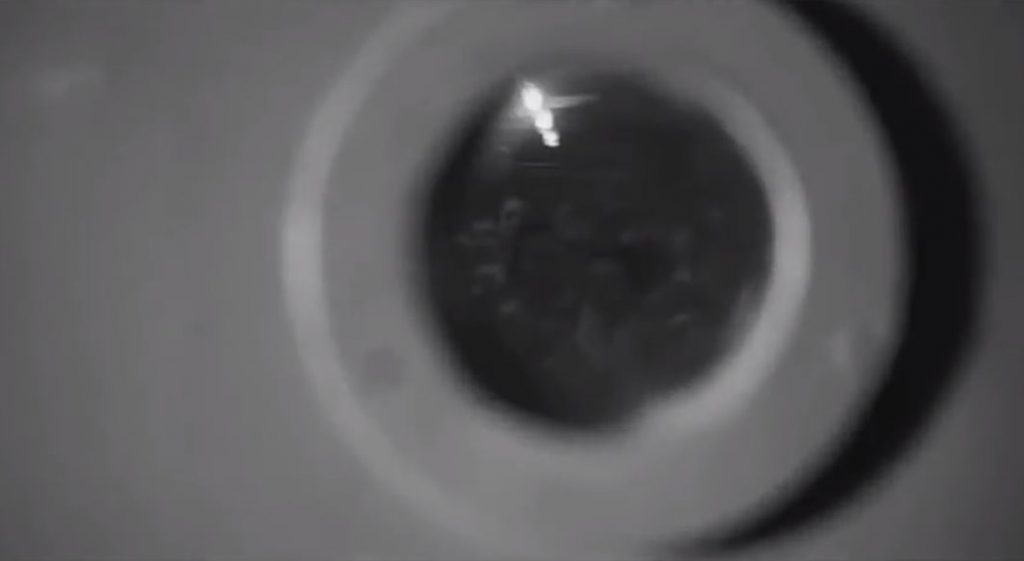
CMSI Lecture: Giacomo Lichtner
Speaker: Professor Giacomo Lichtner (Victoria University of Wellington)
Title: Voices from the Threshold: Cinematic Aesthetics of the Gas Chambers and the Search for Meaning.
Event date and time: Tuesday 29 October 2024, 4.00 p.m. – 5.30 p.m.
Location: Faculteitsraadzaal (05.03.110.009), Blandijn Faculty of Arts and Philosophy, Blandijnberg 2, 9000 Gent

Abstract: While cinematic representations of the Holocaust have dramatically changed in content and form since the Army Film Unit cameras entered the camps in 1945, they continue to rotate around an endless ‘search for meaning’. While survivors have consistently seen that search with suspicion, it remains topical because it speaks to fundamental historical and philosophical questions about whether or not the Holocaust can be explained, imagined, represented, and – crucially for modern remembrance and education – to what wider lessons might be drawn from it.
Within this context, this paper considers cinematic representations of the gas chambers, as perhaps the most elusive, ethically fraught aspect of the Holocaust experience. Although millions of Holocaust victims were murdered elsewhere, in fields, forests and ghettos, the gas chamber immediately emerged as paradigmatic: a site that is both the centre of the genocide and its least relatable passage. Analysing multiple perspectives and attempts, from Marvin Chomsky’s 1978 mini-series Holocaust to Lajos Koltai’s Son of Saul (2015), this paper reflects in particular on the recurrent trope of the threshold, intended both as a physical and a symbolic liminal space: a double-edged boundary used to evoke the lost on the one hand, and to titillate audiences on the other.
Long considered taboo, gas chamber sequences push the boundaries of the representable, inhabit the tension between the ‘uniqueness’ of the Holocaust and its ‘universality’. They are part of the debris left by the collision between most survivors’ refusal of explanatory frameworks and filmmakers’ fascination with (and audiences’ thirst for) ‘meaning’, and with it catharsis, closure, and relevance.
Bio: Giacomo Lichtner is Associate Professor of History and Film at Victoria University of Wellington, where he was also Associate Dean of the Faculty of Humanities and Social Sciences between 2016 and 2024. Giacomo’s research focuses on the ‘long Second World War’, the Holocaust, and on the politics of its commemoration and representation. Alongside numerous essays, Giacomo is the author of Film and the Shoah in France and Italy (2008, 2015) and Fascism in Italian Cinema Since 1945: the Politics and Aesthetics of Memory (2013). His latest projects are a monograph entitled The Search for Meaning in Holocaust Cinema (Bloomsbury), and (with Sarah P. Hill) an investigation into recent Italian interventions on physical remnants of fascism and imperialism, funded by the Australasian Centre for Italian Studies. Giacomo is Deputy Chair of the Holocaust Centre of New Zealand, and regularly advises governmental and non-governmental partners on Holocaust education and commemoration initiatives.
Giacomo is currently working on two research projects related to Holocaust cinema and Fascist material heritage:
-
The Search for Meaning in Holocaust CinemaSetting out from the tension between Holocaust survivors’ suspicion of explanatory frameworks and Holocaust cinema’s obsession with explanation and applicability, The Search for Meaning in Holocaust Cinema is a study of post-war cinema’s efforts to represent the Holocaust and to apportion meaning to the dehumanising and genocidal processes that defined it. The book isolates essential questions about Holocaust history and evaluates critically post-war efforts to represent them in the cinema, proposing a thematic, longue-durée reading of Holocaust cinema’s fraught search for moral and historical meaning. With the search for meaning as its conceptual thread, the book investigates how cinema has represented dehumanisation, mass murder, the emotional ambivalence of liberation, the traumatic legacies of persecution, and other aspects of the history of the Holocaust. The study brings to the surface and traces the contours of a foundational faultline in Holocaust history, that separates yet binds together Holocaust history and any form of Holocaust representation, and that dates back to the first questions raised at the liberation: how does one convey what happened? What – if anything – is best left untold? How can one give a voice to those who did not return, or returned voiceless and does one have the ethical right to do so?
-
Reframing, Revisiting or Removing: Making Fascism Visible in Contemporary ItalyDebates in Italy on the physical remnants of fascism and imperialism that have intermittently surfaced in recent decades have been reinvigorated over the past couple of years in the context of international controversies over the fate of monuments to discredited figures and ideologies. In Italy, such controversies have historically not resulted in a concerted strategy to deal with painful memories, as public opinion moved on, marginalised the challenges, or coalesced around a deliberately ambiguous or short-term response.The response (and lack of response) to the monuments, statues, landmarks or street names that reference or even celebrate Italy’s fascist and imperial past, demonstrates how hard it is for the country to separate the management of its fascist legacies from wider discourses on the nation’s history, where group memories, identities and politics intersect. The project will investigate this nexus.
